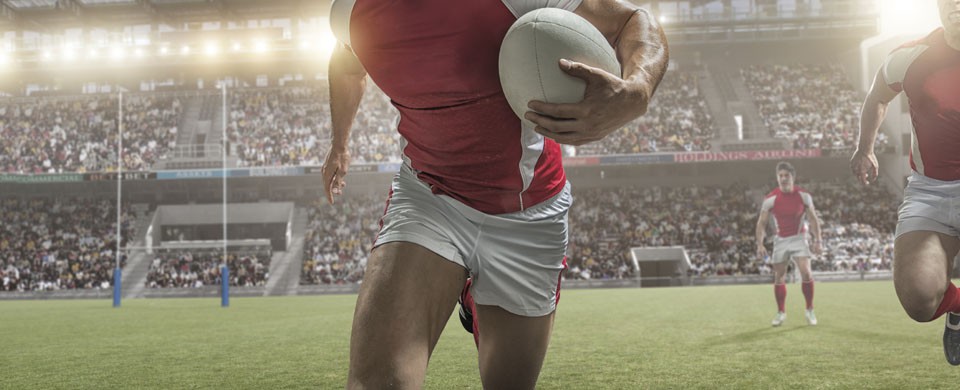The number of Welsh rugby players with doping bans is a real cause for concern
Forget the passion and pleasure, sport is now such an important economic engine that we cannot afford to take any threat to its prospects lightly.
If you doubt that, take a look at the economic impact study for the 2015 Rugby World Cup. Sometimes these reports throw in multipliers of questionable validity but, with 565,000 tickets sold for the 8 matches at the Millennium Stadium, this one doesn’t need them.
The total benefit to Wales over the six weeks is estimated to be £380m – a gross value added that it would normally take more than 21,000 Welsh workers a full year to generate.
With the stakes so high, all sports need to nurture their brands as never before – and this isn’t something that can be left to the marketing department: recent scandals show the product itself has to be right.
The International Olympic Committee knows this only too well and is trying to protect the integrity of this summer’s Rio Games by using new scientific methods to re-test urine samples taken at London 2012 and in Beijing four years earlier.
Altogether 709 re-tests have uncovered 54 athletes, from several countries and sports, who recorded abnormal results.
Lord Coe, head of the international governing body for athletics, said the IOC is “clearly moving in the right direction to promote clean athletes and clean sport.”
But are we giving the custodians of integrity in sport the resources they need to do the job properly?
Take a look at the annual report of the UK Anti-Doping Agency (UKADA), and you will probably be shocked to find that its annual budget would not be enough to cover the salary of an average Premier League footballer.
In 2014-15, UKADA spent £1.5m on testing, £1.6m on laboratory and legal costs, and just £280,000 on an education programme. Its contribution to the World Anti-Doping Agency (WADA) was £486,000.
With such meagre amounts at their disposal, it’s difficult for anti-doping agencies to keep up with the drug cheats and to fight their corner against sportspeople who can afford expensive lawyers.
My fellow Liverpool supporters who think Mamadou Sakho’s recent 30-day ban for ingesting a fat burner was unfair should reflect on the fact that, if he didn’t want to bother himself, he had more than enough money to pay someone to check the prohibited list for him.
Of course, athletes are entitled to question what should or should not be banned. But, as long as a substance is on the list, they have a strict liability not to use it. Without that, anti-doping would be unworkable.
Besides, cases like Sakho’s are rare. Of the 15 Welsh rugby players among the 61 sportspeople currently banned by UKADA, 14 were found to have used anabolic agents, hormone modulators and/or stimulants that were clearly performance enhancing.
It was good to see the Welsh Rugby Union (WRU) say unequivocally in its latest annual report that players at all levels need to take responsibility for checking medications and supplements against the prohibited lists.
But the disproportionately high number of Welsh players on the banned list is a real cause for concern. The new WRU chief executive, Martyn Phillips, rightly argued in the Western Mail recently that the power of the Welsh rugby brand is something many companies would “give their right arm for”.
So what is it worth to protect that brand, not to mention the welfare of children who aspire to be part of it?
In 2014-15, the rugby unions in Wales, England and Scotland had a combined income of £316m – and that was the year before the World Cup.
If rugby, soccer and other wealthy sports gave just a tiny fraction of their revenue (say, one or two per cent) to UKADA that would make a big difference to the protection of the integrity of sport generally.
It would also be a recognition that the enforcement of doping should be controlled by an independent body that isn’t compromised by commercial considerations.
The ongoing scandals in sport show that governing bodies have a natural tendency to want to play down issues they see as damaging.
Separate governance and proper funding of anti-doping could be the salvation of their brands – and the sooner all sports fully recognise it the better.
Steve Howell
This article is Steve’s monthly business column for WalesOnline and the Western Mail newspaper.
Steve is also author of Over The Line, a novel telling the story of an Olympic poster girl facing a doping crisis, which is available on Kindle (£1.99) and in paperback (£6.99) via Amazon.
As a special offer until the Rio Olympics, the paperback is also on sale via this website at £5 inclusive of postage in the UK – ORDER.

